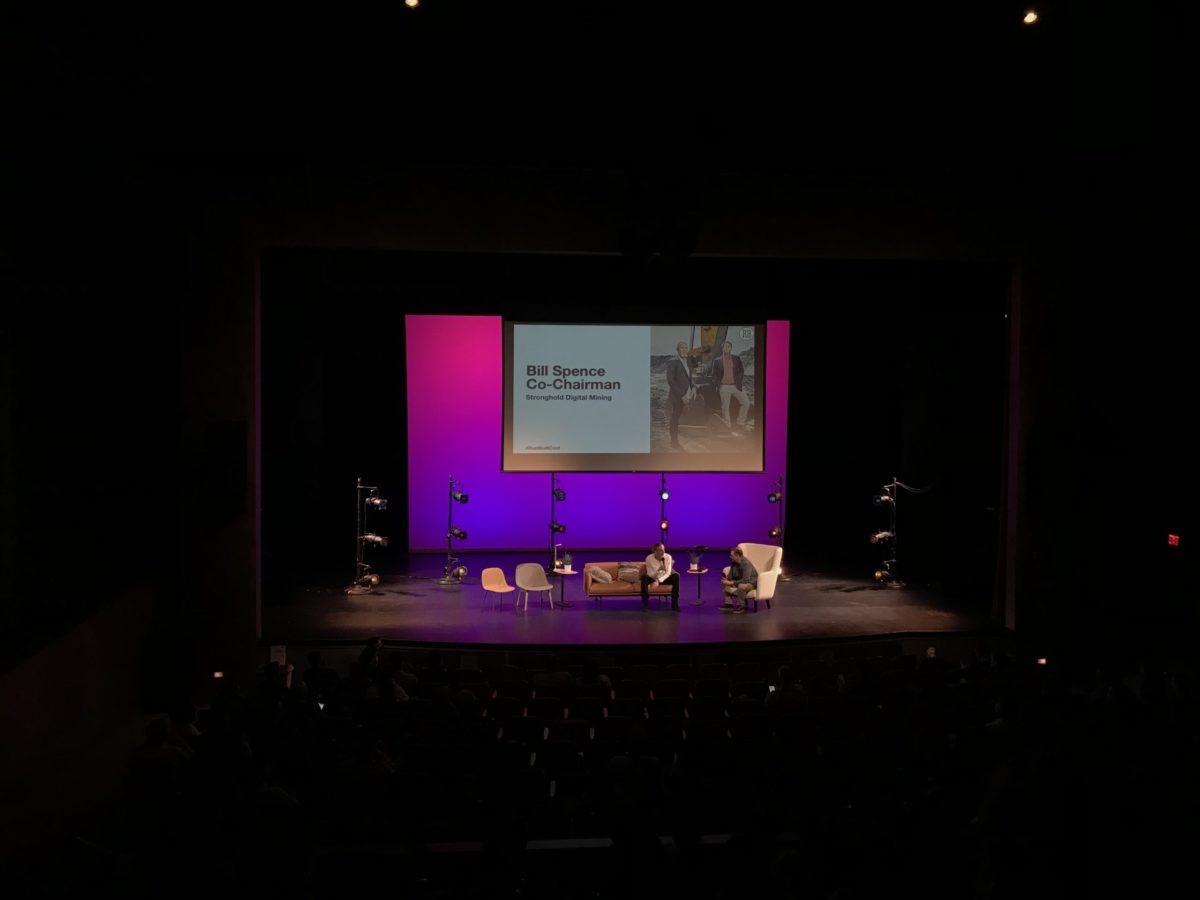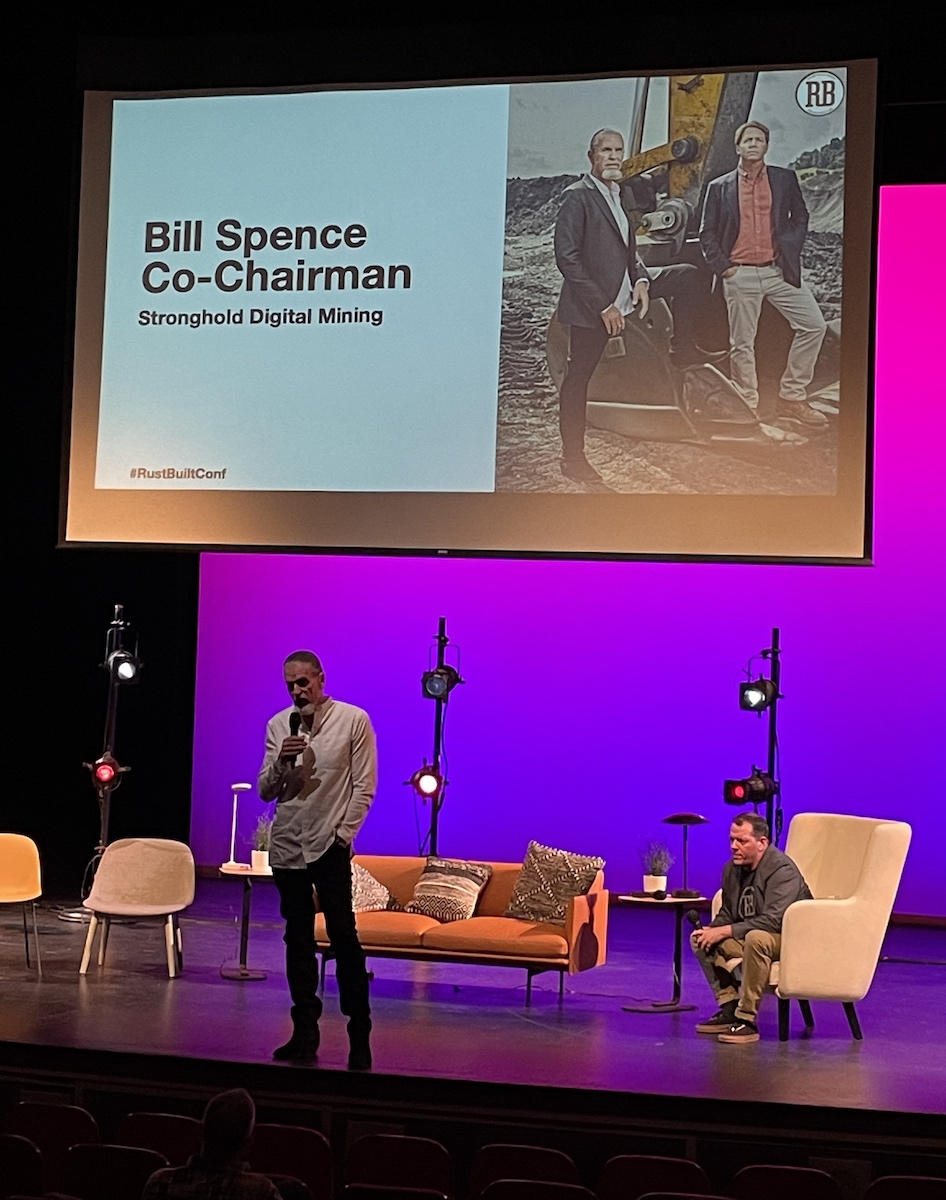Bill Spence might be the Pittsburgh area’s most fearless entrepreneur.
Spence has a long history of entrepreneurship, but his latest work with Kennerdell’s Stronghold Digital Mining is particularly innovative. Originally from the Monongahela Valley southwest of Pittsburgh, Spence’s career focus often overlapped with coal refuse reclamation, as he sought a way to clean up the densely coal mine-populated communities of his childhood. Now, using power plants that can convert that refuse into energy, Stronghold is able to power a different kind of mining initiative — one for bitcoins, a typically energy intensive process within an inherently risky industry.
The pivot to using his mining engineering expertise for cryptocurrency falls in line with what has always been Spence’s way of looking at business and career choices.
“Whatever that business plan is, 100% of the time, it’s going to be wrong. It’s going to change,” the grey ponytailed-founder said at the inaugural RustBuilt Pittsburgh conference last week. “And the thing you need to be the biggest thing you need to be able to do is pivot and think on your feet.”
What was advertised as a fireside chat with host Kit Mueller quickly became a conversation of life lessons in growing a business and beyond, even during the ongoing quiet period for Stronghold in advance of its IPO — which the company filed for in late July, and will have Class A common stock listed on the Nasdaq under the ticker SDIG.
Recalling similar conferences he had been to as a young entrepreneur, Spence also shared advice on how to cut through the generic advice and only use what’s most relevant to your business idea. Another tip he offered for early-stage founders looking to raise venture capital or other outside funding: Be conservative — though he conceded that there eventually is a right time to go looking for larger amounts of that funding once the company is big enough to necessitate it. (Stronghold itself raised $105 million this summer.)
“You need to try and give away as little of your company as possible, because you’re the one that knows your product and your company,” Spence cautioned. “And if you go into this and you raise money, you think you own a business. But if [you think] you’re in business for yourself, you’re not, because you work for this collection of guys that gave you the money and they’re typically it’s not even their money.”

Spence was undoubtedly one of the most experienced entrepreneurs at the conference. His spirited self-awareness stood out, across both discussions of his personal life and his business decisions. Without provocation, he openly acknowledged that Stronghold Digital Mining isn’t a zero-carbon operation — “If you want to boo me right now I have no problem with that,” he said — and explained how the company tries to counter the power plant carbon dioxide emissions as much as possible.
Though Stronghold’s power facilities are not completely free of environmental harm, they are certified Tier II alternative energy resources that the company receives tax credits for operating. And, once work sites are free of harmful coal refuse, Spence shared that Stronghold plans to build new sustainable housing to revitalize not just the physical sites, but the communities who live there, too.
Throughout Spence’s 40 years of experience in the energy industry, he’s been witness to some hardships, with perhaps the most recent being his cancer diagnosis in 2017 (which he went on to beat). Still, he continues to take dramatic business risks in a world of investors that can be risk-averse, particularly when dealing with founders much younger than Spence is.
To an audience question about that problem — being the only one willing to take the risk — Spence offered advice that might be the foundational thinking of his entire life.
“There aren’t solutions to problems, that’s where the opportunity is,” he said, making his way to the edge of the stage. “So don’t be afraid of a problem. Don’t be afraid of it. Look at whatever the problem is and dissect it.”







